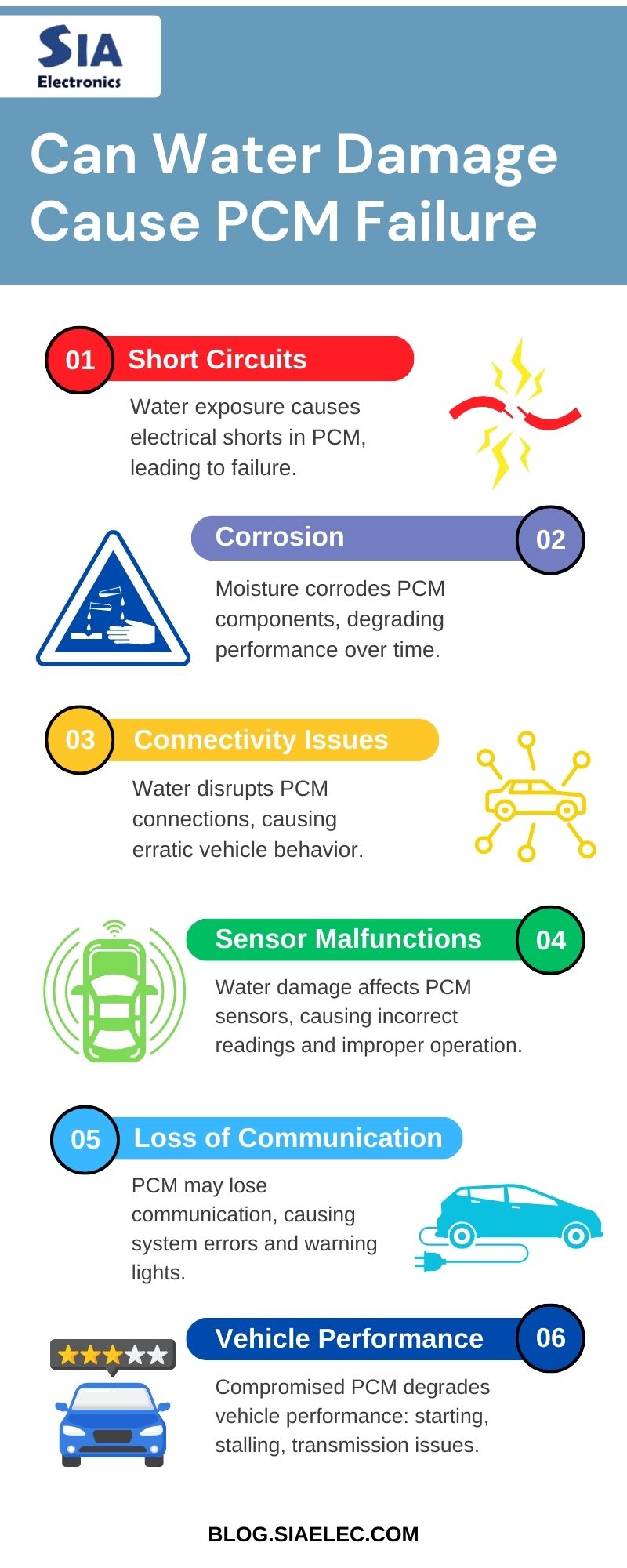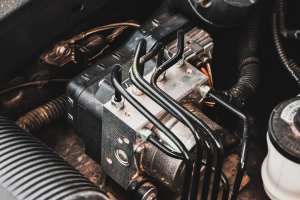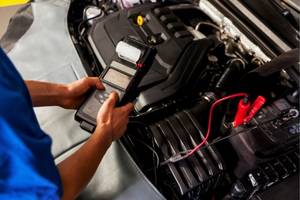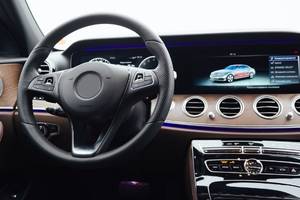Introduction
When you think about vehicle performance, what comes to mind? For many, it's the engine, the transmission, or perhaps even the fuel system. However, there's an unsung hero quietly working behind the scenes to ensure everything runs smoothly: the Powertrain Control Module (PCM). In this blog, we'll delve into the critical role of the PCM, what causes of powertrain control module failure?, and how to diagnose and address these issues. We'll also discuss our expertise at SIA Electronics in re-manufacturing PCMs and other essential automotive components.
Table of Contents
What is a Powertrain Control Module (PCM)?
The Powertrain Control Module, commonly referred to as the PCM, is a vital component in modern vehicles. It acts as the brain of the powertrain system, managing and coordinating the engine and transmission functions. This control unit ensures that the engine and transmission operate harmoniously to deliver optimal performance, fuel efficiency, and emissions control.
The Role of PCM in Vehicle Performance
The PCM plays several critical roles in vehicle performance, including:
- Engine Management: It monitors and adjusts the air-fuel mixture, ignition timing, and idle speed.
- Transmission Control: It ensures smooth gear shifts and controls transmission fluid pressure.
- Emissions Control: It helps reduce harmful emissions by managing exhaust gas recirculation and catalytic converter efficiency.
- Diagnostic Capabilities: It stores trouble codes and provides data for diagnostics when issues arise.
By seamlessly integrating these functions, the PCM enhances overall vehicle performance, fuel efficiency, and emissions compliance.
Symptoms of a Failing PCM
A failing PCM can manifest in various ways, often leading to significant performance issues. Here are some common symptoms:
- Check Engine Light: One of the most apparent signs is the illumination of the check engine light on the dashboard.
- Engine Performance Issues: This can include poor acceleration, stalling, or rough idling.
- Transmission Problems: Hard or erratic shifting can occur due to improper communication between the PCM and the transmission.
- Fuel Efficiency Drop: A malfunctioning PCM can disrupt the air-fuel mixture, leading to decreased fuel economy.
- Starting Problems: The vehicle may have trouble starting or fail to start altogether.
Recognizing these symptoms early can prevent further damage and costly repairs.
Diagnosing a Bad PCM
Diagnosing a bad PCM requires a systematic approach. Here’s how it’s typically done:
- Scan for Trouble Codes: Use an OBD-II scanner to check for diagnostic trouble codes (DTCs) stored in the PCM.
- Visual Inspection: Check for any obvious signs of damage, such as burnt components or corrosion.
- Electrical Testing: Test the voltage and ground signals to ensure the PCM is receiving proper power and ground.
- Component Testing: Test related components, such as sensors and actuators, to rule out other potential issues.
- PCM Testing: In some cases, specialized tools can test the PCM directly to confirm its functionality.
A thorough diagnosis is crucial to avoid unnecessary part replacements and ensure accurate repairs.
Can a PCM Be Reset?
In some cases, a PCM can be reset to clear trouble codes and restore normal operation. However, resetting the PCM is not a permanent fix and should only be done after diagnosing and repairing the underlying issue. Here’s how to reset a PCM:
- Disconnect the Battery: Remove the negative battery terminal to cut off power to the PCM.
- Wait: Leave the battery disconnected for about 15 minutes to allow the PCM to reset.
- Reconnect the Battery: Reattach the negative terminal and start the vehicle.
Resetting the PCM can clear stored codes and temporary glitches, but persistent issues will require further diagnosis and repair.
Can Water Damage Cause PCM Failure?
Yes, water damage is a common cause of PCM failure. Exposure to moisture can lead to corrosion of internal components, short circuits, and electrical malfunctions. Common sources of water damage include:
- Flooded Roads: Driving through deep water can cause water to enter the engine bay and reach the PCM.
- Leaks: Faulty seals, gaskets, or damaged components can allow water to seep into the PCM.
- High Humidity: Prolonged exposure to high humidity can lead to condensation inside the PCM.
To prevent water damage, it’s essential to ensure proper vehicle maintenance and address any leaks promptly.
Conclusion
Understanding the causes and symptoms of powertrain control module failure is essential for maintaining vehicle performance and avoiding costly repairs. At SIA Electronics, we specialize in re-manufacturing automotive electronic control modules, including PCMs, with over 20 years of experience. Our expertise ensures that you receive reliable and high-quality components to keep your vehicle running smoothly.
FAQs on
What Causes Powertrain Control Module Failure? | Key Factors & Solutions
-
1. What role does the powertrain control module play in vehicle performance?
Ans.
The PCM manages and coordinates the engine and transmission functions, ensuring optimal performance, fuel efficiency, and emissions control.
-
2. What are the symptoms of a failing powertrain control module (PCM)?
Ans.
Symptoms include the check engine light, engine performance issues, transmission problems, decreased fuel efficiency, and starting problems.
-
3. How do you diagnose a bad powertrain control module?
Ans.
Diagnosis involves scanning for trouble codes, performing visual and electrical inspections, testing related components, and directly testing the PCM.
-
4. Can a powertrain control module be reset?
Ans.
Yes, a PCM can be reset by disconnecting the battery, waiting for about 15 minutes, and reconnecting the battery. However, this is a temporary fix and underlying issues must be addressed.
-
5. Can water damage cause PCM failure?
Ans.
Yes, water damage can cause PCM failure due to corrosion, short circuits, and electrical malfunctions. Common sources include flooded roads, leaks, and high humidity.
-
6. Why is it important to address PCM issues promptly?
Ans.
Addressing PCM issues promptly is crucial to prevent further damage, ensure optimal vehicle performance, and avoid costly repairs.



